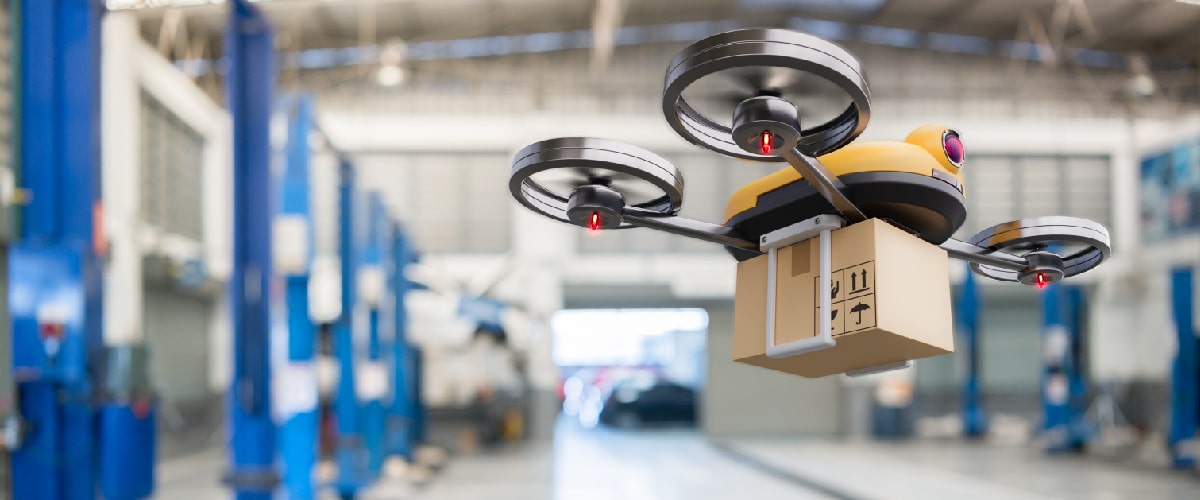 Web Content Viewer
Web Content Viewer
Leveraging AI and Blockchain to Enhance Efficiencies in the Supply Chain

The global supply chain has taken a hit over the past year, which has slowed down distribution channels, heightened labor shortages, and increased product delays. However, advanced technologies such as artificial intelligence (AI) and blockchain have created opportunities for companies to enhance supply chain operations moving forward.
The supply chain has become increasingly complex in many industries, making it difficult to optimize processes and increase efficiencies without the aid of advanced technology. Not only this, but customers are requiring a B2C experience in the B2B supply chain, which means they’re looking for fast shipping, price transparency, mobile ordering, and more. To meet this demand, applications like AI can be embedded into software so that procurement teams can more effectively analyze spending, manage contracts, and expedite sourcing. AI enables companies to collect, manage, and analyze data pertaining to supply chain visibility. Proper data storage and data accessibility is a tremendous help when ensuring shipments are tracked accurately and remain compliant to regulations - another growing requirement in the distribution industry.
AI can be used to clean up supply chains - ultimately increasing transparency and improving communication with vendors. By incorporating AI, companies will be able to ensure essential products are available in the right place at the right time and proactively identify breaks in the existing supply chain. AI can also predict possible demand scenarios based on intelligent algorithms, allowing businesses to take a proactive approach to fulfilling customer needs rather than a reactive approach.
Supply chain leaders who are only now looking to invest in digital transformation are behind the curve. By putting the investment and energy up front to digitize operations with AI, the supply chain will, in turn, become more accurate and efficient when it comes to product tracking, invoicing, and procurement. This digital edge is what will give companies the leg up on competition in 2021 and beyond.
In addition to AI, blockchain is becoming more relevant in the supply chain. Blockchain can increase transparency through intricate time tracking and securing transactions as well as assists in proper data management. Blockchain can also help distributors maintain customer trust and eliminate unsustainable practices from the supply chain. Growers, distributors, manufacturers, and retailers should turn to blockchain to track goods, accurately capture cost, and provide transparency about its suppliers when available. AI and blockchain can also help to prevent or limit recalls and unsafe business practices - saving money that is often spent fixing problems or having to dispose of dead material.
From food manufacturers to retail manufacturers, AI is driving change in warehouse management, enabling warehouse and distribution center activities to keep pace with rapidly shifting supply chain dynamics. AI can control numerous moving parts, both automated and manual, and helps retailers optimize processes so recorded data is collected in real-time and lives in one, easy-to-access network. This helps optimize a retailer's warehouse inventory control procedures, labor planning, suggested purchasing and forecasting, and, of course, its overall customer experience through more rapid fulfillment rates.
Alternatively, food manufacturers need to make supply chain visibility and warehouse operations a top priority to reduce food recalls. They must invest in technology such as AI to have complete visibility into the supply chain. By utilizing AI and blockchain, food manufacturers can track the origin of all products flowing throughout the supply chain. Thus, if a recall is to occur, manufacturers will have one fully integrated system to see exactly where the contamination stemmed from as well as who the product was shipped to.
To truly optimize the supply chain with advanced technology, companies should educate themselves and bring in multiple stakeholders to analyze which application and software suites make the most sense. A fully functional ERP suite, for example, is a great way to incorporate analytics and AI while gaining full visibility into your supply chain, while leveraging blockchain for greater transparency. It’s crucial that IT leaders and software partners work close together to select the digital roadmap that’s right for them – which will ultimately result in ROI.
Kevin Beasley
Chief Information Officer
Chief Information Officer
Comments
By using this site you agree to our Privacy Policy and our Terms of Use.
120 Comac Street
Ronkonkoma, NY 11779
Ronkonkoma, NY 11779
 | Vormittag Associates, Inc. ©2025 |
| Vormittag Associates, Inc. ©2025 |